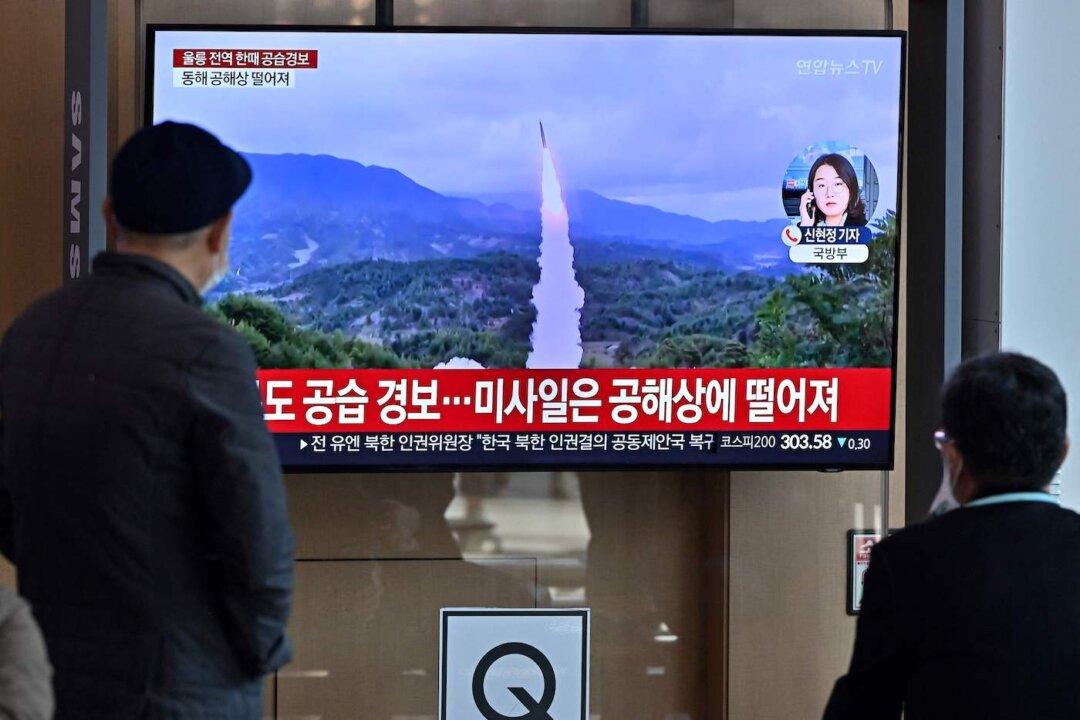South Korea’s military said Wednesday that North Korea had fired at least 10 missiles into the sea, one of which landed close to its maritime border, prompting an evacuation warning for a South Korean island, and subsequent missiles from Seoul.
South Korea’s Joint Chiefs of Staff (JCS) said the missiles were fired from the North Korean coastal city of Wonsan at around 8.51 a.m. (local time), and one of them crossed the Northern Limit Line (NLL), Yonhap News Agency reported.





